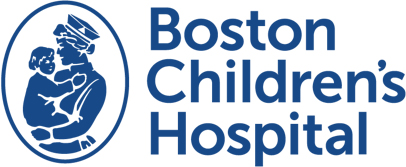Speaker: Timothy Miller, PhD, Faculty at CHIP
Date: March 29, 2024 at 9:00am - 10:00am
The Computational Health Informatics Program (CHIP) first session of this new interactive monthly meeting series.
The Boston Children’s Hospital Artificial Intelligence and Machine Learning Working Group gives our clinicians and investigators a forum for sharing knowledge and collaborating across the many facets of artificial intelligence and machine learning.
Core objectives:
Focus areas:
Participating programs and sponsors include:
We host:
Please send an email to register your interest in joining.
Speaker: Timothy Miller, PhD, Faculty at CHIP
Date: March 29, 2024 at 9:00am - 10:00am
The Computational Health Informatics Program (CHIP) first session of this new interactive monthly meeting series.
Speaker: Harsha Nori PhD, Director of Research Engineering for Aether, (internal group on AI, Engineering and Ethics) at Microsoft.
Date: March 12, 2024 at 2:15pm - 3:00pm
CHIP Monthly AI Journal Club
Dr. Nori will discuss his work at Microsoft and two journal articles:
Capabilities of GPT-4 on Medical Challenge Problems (arxiv.org) [2303.13375]

Speaker: Ellen Grant, MD, Director, Fetal-Neonatal Neuroimaging and Developmental Science Center; Borjan Gagoski, PhD, Faculty MR Physician, Fetal-Neonatal Neuroimaging and Developmental Science Center; Junshen Xu, PhD, Student, at MIT
Date: February 11, 2022 at 09:30AM - 10:30AM
Fetal magnetic resonance imaging is challenging to perform as the fetus continually moves during image acquisition. As a result, the technologist must know how to "chase the fetus" to get images orthogonal to the fetal brain and repeat these acquisitions until images without motion are obtained. In this talk we will discuss how ML approaches are being used to accelerate and automate fetal imaging acquisition. Fetal imaging can be a challenge, but fetal motion also provides insight into the neurological and musculoskeletal development of the fetus.

Speaker: Ben Reis, PhD and Ilkin Bayramli, at Boston Children's Hospital
Date: February 1, 2022 at 2:00PM - 3:00PM
Dr. Ben Reis and Ilkin Bayramli will present their paper in Journal of the American Medical Informatics Association (JAMIA) entitled "Temporally informed random forests for suicide risk prediction":

Speaker: Drs. Arjun Manrai, Amy Starmer, and Robert Rosen, at Boston Children's Hospital
Date: January 21, 2022 at 09:30AM - 10:30AM
A discussion among Drs. Arjun Manrai, Amy Starmer, and Robert Rosen, moderated by Dr. Ken Mandl.
Speaker: Byron Wallace, PhD, Associate Professor at Northeastern University
Date: December 14, 2021 at 2:00PM - 3:00PM
Dr. Wallace will talk about their work in text summarization and simplification, and issues related to factual accuracy of generated texts:
Speaker: Alal Eran, PhD, Faculty, Computational Health Informatics Program at Boston Children's Hospital
Date: November 30, 2021 at 2:00PM - 3:00PM
Dr. Eran presented her paper in Nature Medicine entitled "A multidimensional precision medicine approach identifies an autism subtype characterized by dyslipidemia": https://www.nature.com/articles/s41591-020-1007-0.
Speaker: William La Cava, PhD, Faculty, Computational Health Informatics Program at Boston Children's Hospital
Date: September 17, 2021 at 09:30AM - 10:30AM
Most interpretable machine learning research focuses on explaining the outputs of black-box models. A different, and promising, approach is to use machine learning to find the simplest possible model that meets certain performance criteria; this is the pursuit of symbolic regression. In this talk I will discuss the concepts of interpretability and explainability, and how they are used in the machine learning world. I will then discuss a pre-print that will be published in the Neurips Datasets and Benchmarks track later this year.
Speaker: Lucy Gao, PhD, Assistant Professor of Statistics at the University of Waterloo
Date: May 11, 2021 at 2:00PM - 3:00PM
Dr. Gao will discuss the following article: Gao, Bien, and Witten (2020). Selective inference for hierarchical clustering. arXic:2012.02936.
This journal club is only available to the BCH community. If you would like to be sent a calendar invite please email chip@childrens.harvard.edu.
Speaker: Andrew Beam, PhD, Assistant Professor, Department of Epidemiology at the Harvard T.H. Chan School of Public Health
Date: April 13, 2021 at 2:00PM - 3:00PM
Dr. Beam led a discussion on the following article: Tom B Brown, Benjamin Mann, Nick Ryder, et al. Language models are few-shot learners. arXiv preprint arXiv:2005.14165 [cs], 2020. Dr. Beam also discussed results from his group that evaluates this model on medical applications.